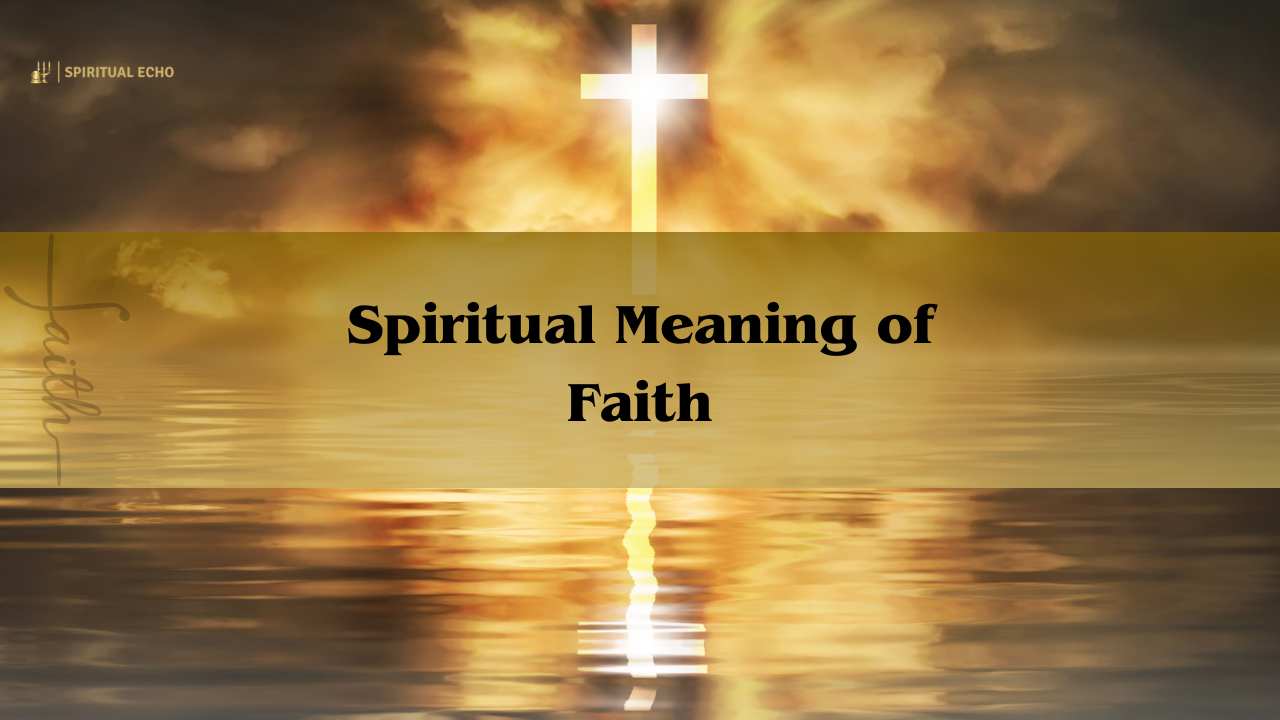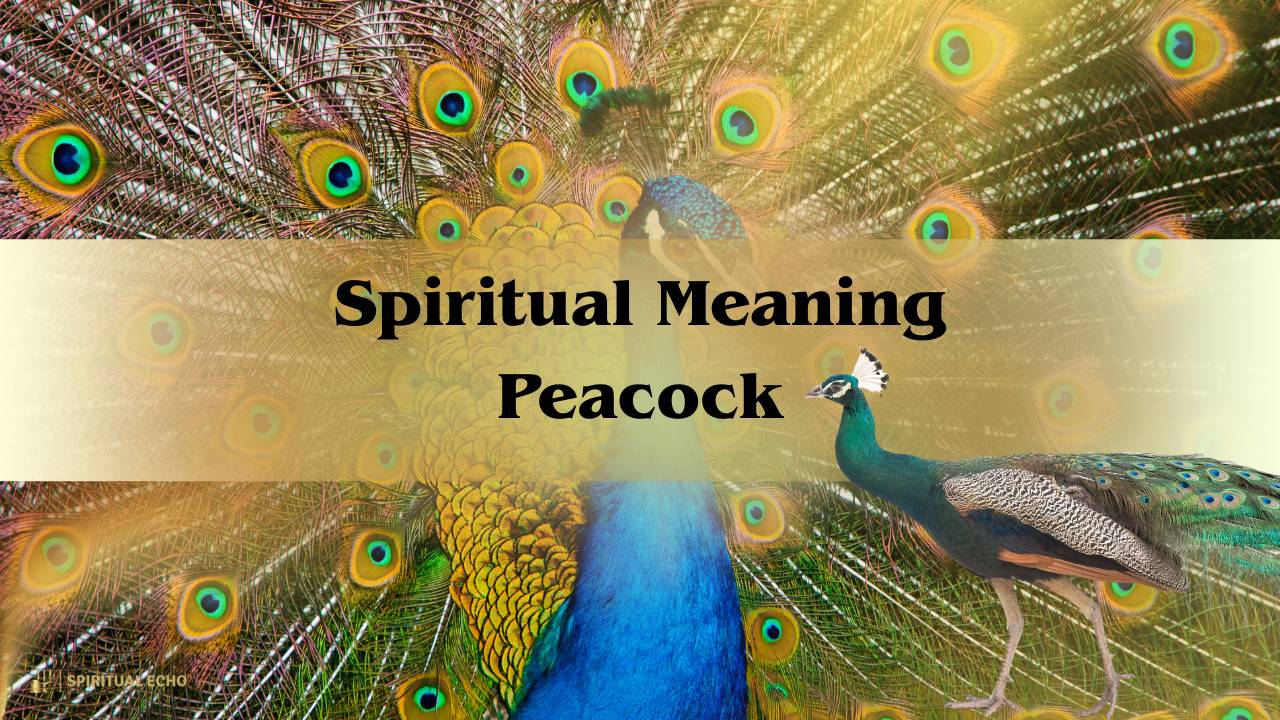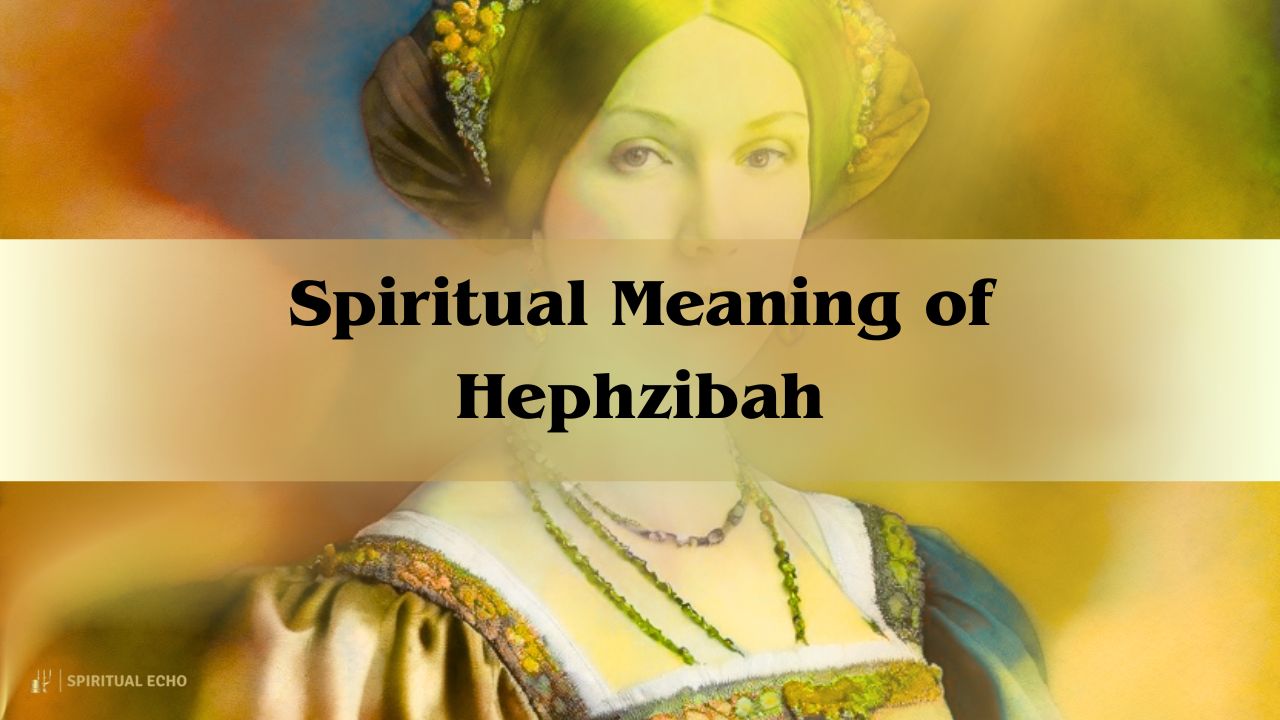Faith is a term used in different religions and beliefs, like Christianity. It’s not just following rules, but trusting in God.
Faith is confidence in what we hope for and assurance; certain of what we do not see. It’s more than just believing in God; it’s having a close relationship with Him and trusting in His promises. Faith is found in many spiritual beliefs, not just one.
In this blog, we will explore the Spiritual Meaning Of Faith and its importance in personal growth.
We will also discuss how faith can bring comfort and strength during hard times, and ways to deepen our faith for healing and resilience.
What is the spiritual meaning of faith? Exploring the essence of faith beyond religion symbolizes trust, belief, and connection to a higher power or purpose. In spirituality, faith serves as a guiding light in challenging times, fostering inner strength and resilience.
- Spiritual Meaning Of Faith: Brief Description
- Importance Of Faith
- Definition Of Faith In The Bible KJV
- Understanding The Connection Between Faith And Personal Growth
- Exploring The Concept Of Faith In Different Spiritual Traditions
- How Faith Can Provide Comfort And Strength During Difficult Times?
- The Role Of Faith In Building Resilience And Overcoming Challenges
- Practices To Deepen Your Faith And Spiritual Connection
- Cultivating Gratitude And Trust As Part Of Your Faith Journey
- Connecting With A Community Or Support System To Nurture Your Faith
- Reflecting On The Intersection Of Faith, Purpose, And Meaning In Life
- Real-Life Examples Of Individuals Whose Faith Has Inspired Others
- The Transformative Power Of Faith In Promoting Healing And Resilience
- FAQ About Spiritual Meaning Of Faith
- Final Thought 💭
Spiritual Meaning Of Faith: Brief Description
Faith is more than belief. It’s a personal connection with God and trust in His promises. It’s surrendering to a higher power and living with purpose.
Faith guides our thoughts, words, and actions, shaping our existence. It’s a journey of growth and aligning our lives with God’s will.
Understanding the Faith meaning, beyond its common usage in everyday conversation, allows us to tap into a deeper level of consciousness and connection with the divine.
It enables us to navigate life’s challenges with grace and perseverance, knowing that we are supported by a power greater than ourselves.
3 Aspects Of Faith
Faith has three important parts:
- Putting our hope in what God promises.
- Trusting in God’s plan.
- Having a strong belief in what God teaches us.
These 3 aspects of faith help us live a fulfilling spiritual life with peace and purpose.


Importance Of Faith
Faith is super important in our lives. The importance of faith gives us meaning, helps us through tough times, and promises eternal life.
Faith is not just believing, it’s a strong relationship with God that guides and comforts us.
Full Meaning Of Faith: Confidence In God
The full meaning of faith is more than just believing in God. The full meaning of faith also includes understanding His grace, promises, and presence in our lives.
Firstly, faith is a gift from God, not something we earn. It helps us trust Him and His plans for us. Secondly, faith involves publicly declaring our commitment to follow Christ, often through rituals like baptism.
Lastly, faith is shown through our actions, not just our beliefs. Dead faith is when there are no actions to accompany our beliefs.
What Is Faith In God?
Faith in God is important in Christianity. It means believing in Jesus Christ and trusting His teachings and promises.
What is faith in god involves accepting that Jesus is the Son of God who came to save us from sin. We believe in His sacrifice on the cross for forgiveness and salvation. We also trust in the Bible as the truth.
Through faith in God, we have a personal relationship with Him and feel His love and presence.
We follow His wisdom and surrender to His plan. Faith helps us obey His commandments and live a life that shows His love.

Definition Of Faith In The Bible KJV
The Bible says faith is being sure of what we hope for and certain of what we do not see (Hebrews 11:1 KJV).
It’s trusting God and His promises, not just in our minds but in our hearts. Faith means surrendering to God, living like Him, and building a strong spiritual life through the assurance of things hoped for and the conviction of things not seen in this particular passage.
How About Exploring More of Our Insightful Reads?
Examples Of Faith In The Bible
Faith in the Bible is shown by people who trust God’s promises. Here are some examples:
- In the Old Testament, Abraham obeyed God and left his homeland. His faith made him righteous and he became the father of many nations.
- In the New Testament, Paul became a follower of Christ after meeting Him on the road to Damascus. He spread the message of salvation through his letters and journeys.
These examples inspire believers throughout history. Faith has the power to transform lives.

Understanding The Connection Between Faith And Personal Growth
Faith and personal growth go hand in hand. It’s not just a belief, but a journey that shapes our lives.
Faith gives us hope for the future and a sense of purpose. It reminds us to be thankful for blessings and stay humble.
During tough times, faith gives us strength and hope. It helps us trust that God is with us and will guide us through challenges
How About Exploring More of Our Insightful Reads?
Touching Foreheads Together Spiritual Meaning: Gesture Of Intimacy & Unity
The Relationship Between Faith, Belief, And Practice
Faith, belief, and practice are all important in our spiritual life. True Faith means trusting and having confidence in God as our savior.
Belief is about accepting truths about God. But it’s not just about what we believe – we must also live out our faith.
This means our actions, attitudes, and behaviors should align with God’s teachings, causing even the demons to shudder in fear.

Exploring The Concept Of Faith In Different Spiritual Traditions
Faith is found in many spiritual traditions around the world. Meaning Of faith is a universal experience that helps people connect with the divine and find meaning in life.
Different traditions have their own ways of understanding faith. In Buddhism, faith means trusting the Buddha’s teachings for enlightenment. In Hinduism, it’s about devotion to the divine.
Indigenous traditions connect faith with nature and ancestral spirits. In Islam, faith is about submitting to Allah’s will and following the Quran.
How Faith Can Provide Comfort And Strength During Difficult Times?
Faith can give comfort and strength when times are tough. It brings peace, hope, and assurance that we are not alone. Here are some ways faith helps:
- Faith reminds us God is with us: It shows us that God sees our pain, hears our prayers, and gives us strength.
- Faith gives hope in hard times: It reminds us that God is in control and can bring good out of tough situations.
- Faith gives us purpose and meaning: It helps us trust that God has a plan and our struggles have a reason.
How About Exploring More of Our Insightful Reads?
Spiritual Meaning Of Jesus: Meaning Of The Name Jesus

The Role Of Faith In Building Resilience And Overcoming Challenges
Faith helps us be strong and face tough times. Here’s how:
- Strong belief: Faith makes us believe that God is there for us. This gives us the confidence to face problems.
- Hope and positivity: Faith gives us hope and positivity, even in hard times. It helps us keep going and find solutions.
- Trust in God: Faith teaches us to trust God and not worry. This trust helps us know that God will take care of us.
- Prayer and support: Faith encourages us to pray and seek help from others. Prayer helps us connect with God and find comfort. Support from others gives us strength and advice.
Faith helps us be brave and hopeful when facing challenges. We trust that God is always with us, helping us through.
How About Exploring More of Our Insightful Reads?
Spiritual Meaning of Laodicea: A Biblical Exploration
Examining The Role Of Community And Fellowship In Sustaining Faith
Community and fellowship are important for keeping faith strong. They give support and help believers learn and grow in their spiritual journey. Here are some ways community and fellowship help sustain faith:
- Support and accountability: Being part of a faith community gives support and guidance. Fellow believers can offer help and encouragement, making it easier to stay strong in faith.
- Shared experiences and wisdom: Fellowship allows believers to share their experiences and knowledge. This helps individuals understand their faith better and apply it in their daily lives.
- Worship and spiritual growth: Community and fellowship provide chances for collective worship and spiritual growth. Through practices like prayer and worship services, individuals can deepen their relationship with God.

Practices To Deepen Your Faith And Spiritual Connection
Deepening your faith and spiritual connection is a lifelong journey that needs practice. Here are some simple practices to help you:
- Prayer: Talk to God daily, thank Him, and ask for guidance.
- Study the Bible: Read and reflect on scripture daily.
- Worship with others: Attend church services and join small groups.
- Meditate and reflect: Spend quiet time listening to God.
- Connect with the Holy Spirit: Build a closer relationship with Him.
By doing these practices, you can strengthen your faith and feel God’s presence in your life.
Cultivating Gratitude And Trust As Part Of Your Faith Journey
Gratitude and trust are integral to a vibrant faith journey. Cultivating these qualities can deepen your relationship with God strengthen your faith and understand the Spiritual Meaning Of Faith: Here’s how you can cultivate gratitude and trust as part of your faith journey:
- Gratitude: Practice gratitude by intentionally recognizing and giving thanks for God’s blessings in your life. Keep a gratitude journal, where you write down things you are thankful for each day. Express your gratitude to God in prayer, acknowledging His goodness and faithfulness.
- Trust: Develop a deep sense of trust in God by surrendering your worries, fears, and anxieties to Him. Remind yourself of His faithfulness in the past and trust that He will continue to provide for your needs. Trust that God’s plans for you are good, even when things don’t go according to your own plans.

Cultivating Faith Through Spiritual Practices Such As Prayer, Meditation, And Ritual
Spiritual practices like prayer, meditation, and rituals can help you grow in faith. Here’s how they can help:
- Prayer: Talking to God, sharing your needs, and seeking guidance can strengthen your faith and trust.
- Meditation: Focusing on God’s presence can deepen your spiritual connection, bring peace, and build trust.
- Ritual: Symbolic actions like lighting candles or participating in religious practices can connect you with the divine and reinforce your faith.
By making these practices a part of your life, you can create space for God to work in your heart and deepen your faith. They offer opportunities for reflection, connection, and spiritual growth.

Connecting With A Community Or Support System To Nurture Your Faith
Connecting with a community or support system is important for growing your faith. Here’s how being part of a community can help:
- Support and encouragement: Being with other believers helps you feel supported and encouraged. You can pray for each other, offer practical help, and lift each other up.
- Accountability and growth: Community helps you stay accountable and grow spiritually. Learning from others can inspire you to deepen your relationship with God.
- Learning and growing: Being in a community gives you opportunities to learn and grow in your faith. Through Bible studies and teachings, you can understand God’s word
Reflecting On The Intersection Of Faith, Purpose, And Meaning In Life
Faith, purpose, and meaning are connected and shape our lives. Here’s how they work together:
- Faith gives life meaning: It helps us understand the purpose of life and believe in a greater plan. It gives us a sense of belonging and a deeper view of life’s ups and downs.
- Purpose comes from faith: Faith helps us find our purpose and live according to God’s plan. It guides our decisions and actions, leading to a fulfilling life.
- Meaning is found in faith: Faith connects us to something bigger, giving us answers to life’s questions and a sense of significance. Meaning is discovered through a relationship with God and living out His plans.
The connection of faith, purpose, and meaning is a personal journey of seeking God’s guidance, aligning our lives with His will, and finding fulfillment in living out our faith.
Overcoming Doubt And Strengthening Faith Through Introspection And Reflection
Doubt is normal in our faith journey, but it can help us grow and strengthen our faith. Here are some ways to overcome doubt and strengthen your faith:
- Face your doubts: Don’t ignore them. Instead, use them as a chance to learn and grow. Spend time praying, studying, and thinking about your doubts. Talk to trusted mentors or leaders.
- Look within: Take time to think about your beliefs and experiences. See how your faith has impacted your life and given you meaning.

Real-Life Examples Of Individuals Whose Faith Has Inspired Others
Throughout history, many people have inspired others with their faith. Here are a few examples:
- Mother Teresa: She helped the poor in India and inspired millions worldwide.
- Martin Luther King Jr.: He fought for equality and justice using love and nonviolence.
- Corrie Ten Boom: She hid Jews during World War II and inspired others to stand up for justice.
These individuals show how faith can make a difference in the world.
How About Exploring More of Our Insightful Reads?
Spiritual Meaning Beetle: Symbolic Meaning In Insect World
The Transformative Power Of Faith In Promoting Healing And Resilience
Faith is powerful. It helps people heal and stay strong in tough times. Studies show that having strong faith can make people feel less sad and stressed.
Faith gives people a sense of purpose and hope. It helps them get through hard times. It can also help with physical healing. People who pray and go to religious events tend to get better faster when they are sick like sleep paralysis.


FAQ About Spiritual Meaning Of Faith
What Is The Spiritual Definition Of Faith?
Faith, spiritually, embodies unwavering belief and trust in divine power or universal energy. It transcends religion and connects individuals to a higher purpose, offering solace and guidance in life’s journey.
What Are The 7 Characteristics Of Faith?
Faith embodies belief, trust, loyalty, and commitment. The key characteristics include confidence, conviction, surrender, obedience, patience, perseverance, and humility. These qualities form the foundation of a steadfast faith that sustains individuals through life’s trials and triumphs.
What Are The Four Types Of Faith?
The four types of faith are natural faith (common to all), temporary faith (superficial belief), spurious faith (seeming genuine but not lasting), and saving faith (true, enduring belief in God). Each type plays a distinct role in spiritual growth and understanding.
What Is Faith In Simple Words?
Faith, in simple words, is a strong belief or trust in something without needing proof. It involves conviction and confidence in unseen or unproven aspects. Faith provides a sense of hope, purpose, and direction in life.
Final Thought 💭
Faith is more than just believing. It is trusting in God’s character and promises. Faith is shown through serving, obeying, and depending on God’s guidance and provision. Examples like Abraham, Mary, Shadrach, Meshach, and Abednego inspire believers to trust God’s word.
The spiritual meaning of Faith can bring healing and strength, giving hope in tough times. Let’s all grow our faith in God, knowing He is faithful and will help us in every situation. As the Lord said in Matthew 9:27-30, ” According to your faith let it be to you.”


































Leave a Reply